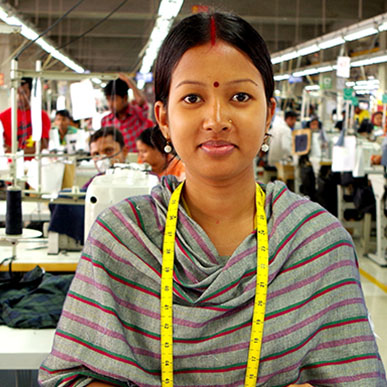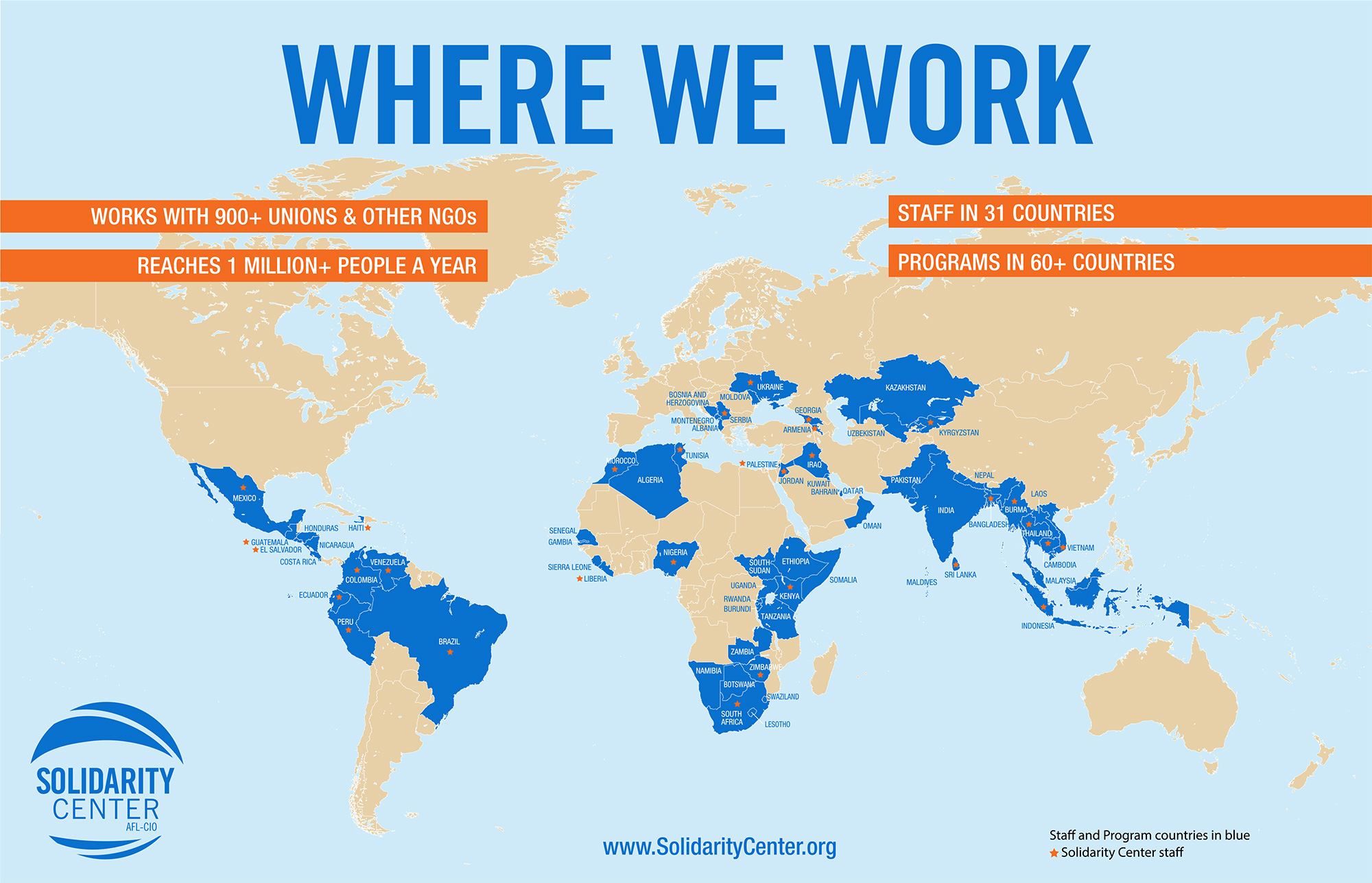UKRAINE WORKERS: WARTIME DIARIES
WHY WE’RE DIFFERENT
We are the largest U.S.-based international worker rights organization partnering directly with workers and their unions, and supporting their struggle for respect, fair wages, better workplaces and a voice in the global economy.
We value the dignity of work and workers. We know how all the work everyone depends on gets done–who picks the food for your table, cleans your home so you can go to the office, makes your clothes, keeps your streets clean. And at our core is every worker’s right to solve issues through collective action and to form unions.
What’s New

More Attacks on Rights of Ukrainian Workers
Read More

Haiti Garment Workers Win Key Benefits
Read More

Podcast: In Midst of War, Ukrainian Parliament Attacks Worker Rights
Read More

The Solidarity Center Podcast

BILLIONS OF US, ONE JUST FUTURE
CONVERSATIONS WITH WORKERS (& OTHER SMART PEOPLE) WORLDWIDE SHAPING THE WORKPLACE FOR THE BETTER
Hosted by Solidarity Center Executive Director Shawna Bader-Blau
Subscribe: Amazon | Apple Podcasts | RSS | Spotify | Stitcher
No Results Found
The page you requested could not be found. Try refining your search, or use the navigation above to locate the post.
Our work
Programs in
Countries
Reaching
People
Works with
Unions & other Ngos

Reaching 1 Million+ People Worldwide
Solidarity Center in the News
The FIFA Scandal Could Hurt Migrant Workers and Their Families Back Home
As the FIFA corruption scandal widens and pressure builds to move the World Cup from countries tainted by the investigation, a deeper human tragedy may be unfolding: The economically fragile situation of migrant workers who build infrastructure for global sporting events will only worsen if they lose their jobs abroad and have no employment to return to at home, writes the Solidarity Center’s Sonia Mistry.
Fair Trade for the Global Garment Industry
Solidarity Center Cambodia Country Director David Welsh writes: “Given the global nature of the garment industry, and of its shortcomings, improving workers’ lot calls for a global solution. The most efficient approach is to increase the costs to the big brands themselves of tolerating poor working conditions… [t]he big brands are ultimately responsible for the basic welfare of all the workers who toil for their bottom line.”
Labor Unions Gaining Ground in Bangladesh Garment Industry
In the garment industry, the average union leader is just 26 years old with an eighth grade education and likely migrated to the city from a village. “The learning curve is steep,” said Alonzo Suson, program director of Solidarity Center, an affiliate of the AFL-CIO, which is training union leaders in Bangladesh.
Follow Us On Twitter
Mark your calendar
Test 12-1-22
Read More
Women Workers’ Voices and Participation on the COVID-19 Recovery Front Lines
Read More
